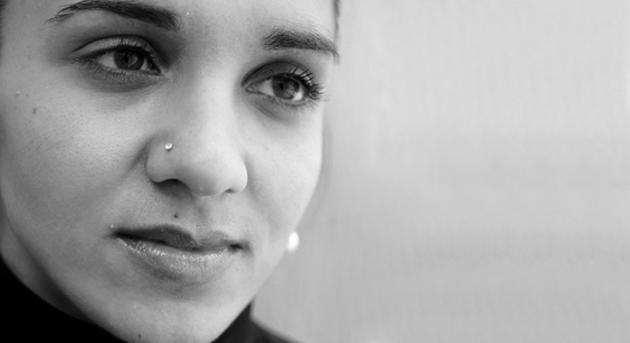Renata Berkyová: Slovak reporting on same-sex adoption and marriage casts aspersions on Roma

Last Saturday an eighth referendum was held in Slovakia, a referendum "for the family" which has sparked a rather large fuss. The "Alliance for the Family" group, as the initiator of the referendum, has been haunting the public with the idea that the Slovak family is at risk, talking about freedom of speech and of the press, human rights violations, and forced, ideologically-driven sex education.
It is the Alliance, however, who are exploiting ideological pressure. In their vision, there are now crowds of gays and lesbians lining up in front of Slovak orphanages to adopt "our" children.
Slovaks love their reality tv and tabloid press. Romani people (ideally referred to as "settlers") are one of the guaranteed themes that the Slovak media will risk taking an interest in, because it sells.
Before the plebiscite itself, the newspapers were full of articles about adoption by same-sex couples and the opinions of famous celebrities on the issue, and one of the headlines read "Roma not interested in referendum on the family". The author of the article based his claims on a statement made by Petr Pollák, the Slovak Government Plenipotentiary for Romani Community Affairs, and on statements made by several Romani politicians whom he contacted for comment.
The Romani figures quoted drew attention to the many more serious problems that Romani people must face in Slovakia today. The article also included a statement from Václav Kappel of the Romani Initiative of Slovakia (RIS), who said he was preparing to actively mobilize members of his party to participate in the referendum.
It is, therefore, evident that the headline to the piece was misleading. It is also clear that only a fraction of readers ever actually clicked on the headline to read the whole piece.
Such journalistic practices were most evident after the results of the referendum were published. On the one hand, the generally low turnout surprised no one.
With the exception of the vote on Slovakia’s EU entry, which was preceded by a massive campaign, voter turnout has never exceeded 50 % there, but journalists were transported by the discovery that at Luník IX, a Romani-occupied housing estate, the voice of the Romani people was all but silent during this recent referendum. They were amazed that impoverished neighborhoods where residents face existential problems due to social exclusion are not also preoccupied with the definition of marriage.
So it is that, instead of reporting facts about the society-wide lack of faith in the institution of the referendum itself, journalists in Slovakia are interested in reporting whether Romani people in this or that part of the country expressed their opinions at the ballot box. Local (probably non-Romani) members of electoral commissions willingly answer the reporters’ questions and give their own assessments of Romani interest in the family as an institution.
Unfortunately, however, the media only find the Roma interesting to the extent that they do not interfere with the lives of non-Roma. The more serious matter here – besides the lack of interest in the referendum, the fact that almost no information reaches secluded localities, and tendentious journalism – is the ignoring of actual human rights violations, as the Alliance so vehemently insists is taking place.
The right of a child to an education that qualitatively develops his or her personality is not just ignored in connection with Romani children in Slovakia, it is frequently violated. Children end up in segregated classrooms, schools, and even whole villages; non-Romani parents prefer to drive the scions of their families to a school three villages away just so their children don’t have to be with the "gypsies".
The neighboring Czech Republic is described in Slovakia as a dangerous example of a country with legal registered partnership for same-sex couples – and it has also lost a case in Strasbourg because it discriminated against almost 20 Romani children during their enrollment into primary school. The topic of equal access to education is, however, evidently too much for Slovak society.
It is especially too much because it concerns the Roma (!) – of whom it is, after all, generally known that they are "freeloaders on the state". I don’t think we need extensive analysis, however, to decide which of these issues – same-sex marriage or discrimination in access to education – poses the real threat to society.
We probably should be calling for our children to be raised to be more friendly toward and tolerant of others, especially minorities. That would be better than teaching them to perfect their intolerance, to say nothing of encouraging it.